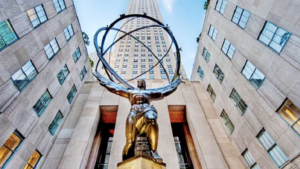Home » Commentary » Opinion » Liberalism is in trouble
· Spectator
 Liberalism is in trouble. This is not a comment about political parties which may use the Liberal name, but about the approach to society and government that emphasises the decentralisation of power to foster individual empowerment. The trouble is that this liberalism is losing supporters. This trend was documented 18 months ago in a CIS Policy Paper which explained the shift in those born after 1980 as due in part to ignorance of the problems and failures of socialism.
Liberalism is in trouble. This is not a comment about political parties which may use the Liberal name, but about the approach to society and government that emphasises the decentralisation of power to foster individual empowerment. The trouble is that this liberalism is losing supporters. This trend was documented 18 months ago in a CIS Policy Paper which explained the shift in those born after 1980 as due in part to ignorance of the problems and failures of socialism.
There are other powerful factors as well. In a recent article in the Atlantic, David Brooks outlines the devastating effects in the USA of the long term decline of social trust— the confidence that others will do the right thing. From the high water mark of the 1990s when confidence in human liberty was at its peak, American society has today moved to an age of precariousness. Naïve assumptions that ‘when everybody does their own thing, then everything will work out for everybody’ have given way to a pervasive distrust mindset which is marked by feelings of insecurity and anger. This is changing American culture writes Brooks,
The culture that is emerging, and which will dominate American life over the next decades, is a response to a prevailing sense of threat. This new culture values security over liberation, equality over freedom, the collective over the individual.
The dire implications for liberalism are clear in the key shifts Brooks notes; from risk to security, from achievement to equality, from the individual self to embedded selves in group identity, from global to local, and most significantly, from liberalism to activism. Brooks writes that the liberalism is out of tune with where America now is.
Liberalism is ill-suited for an age of precarity. It demands that we live with a lot of ambiguity, which is hard when the atmosphere already feels unsafe. Furthermore, it is thin. It offers an open-ended process of discovery when what people hunger for is justice and moral certainty.
What about matters here in Australia? In his latest book, Tim Wilson presents a similar, if less extreme, picture. He shows that Australian’s demographic profile is moving away from liberal democracy anchored in individual empowerment through responsibility, and towards social democracy focused on collective empowerment. Part of the reason is not so much ideological but rather the sense that a liberal economic order isn’t seen as really working for people any more —especially younger people. Wilson lauds much of what he calls the neo-liberal era in which both capital and social equity were extracted to increase wealth and reduced poverty. However, he points out that in the process the practical application of liberalism changed from a focus on empowering the individual to a focus on advancing freedoms in a way that failed to give weight to the liberal idea of justice. Without that, Wilson argues, the legitimacy of liberalism, what he calls its ‘social licence,’ is under question. He particularly has in mind those feeling left behind. For liberalism to be relevant and gain an enduring constituency it has to be seen to work in lived experience by enabling individuals to flourish. At present, writes Wilson, it is missing in action.
There is also evidence that social trust is declining in Australia. Although not as extreme as the US, the latest Elderman Trust Barometer shows there is still cause for concern, with only 14% of those surveyed being sure “the system is working for them;” less than a third believing “they and their families will be better off in five years’ time”, and just half believing that “capitalism as it exists today does more harm than good in the world.” Although these results reveal a pre-COVID-19 world and things may be different now, the long term trend remains.
What’s to be done? Wilson envisages a renewed liberalism which, by giving weight to justice not just freedom, can address contemporary challenges and rebuild liberalism’s social licence. He particularly has in mind issues of housing affordability and taxation equity. Brooks calls for the hard work of rebuilding social trust in what he calls “the nitty-gritty of organisational life” in which individual people grow to depend on each other as come together to organise to target their many problems.
What isn’t an option is doing nothing.
Liberalism is in trouble